Game Development And Design Jobs
Home » Career » Technical, Creative, Business, Administrative – You Have A Place in the Video Game Job Market
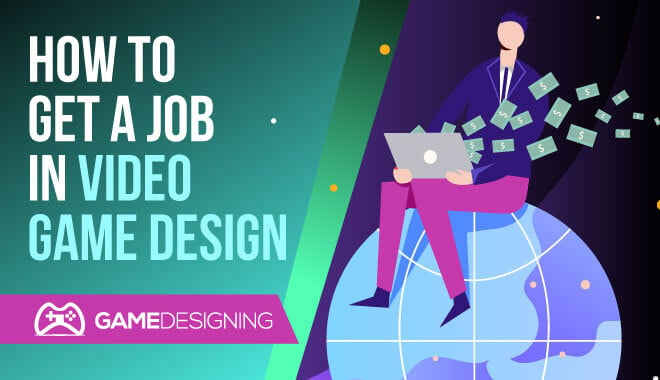
It's something we'd all like to do, I'm sure. We play our favorite games and would love to be in the creative process. Who doesn't want to build a rich gaming world like World of Warcraft? How do you become a game developer?
You need an education or certification background in specific technological fields of study. This could be a degree in computer science, a programmer or coding certification, or an impressive resume.
Our beloved game industry continues to grow, which is great for all those aspiring game designers and game developers out there.
As the industry grows, so too does competition for positions in the industry. Not so long ago, many schools started offering game design certificates. Now we're seeing an abundance of game design programs and game development programs.
How do I start a career in the gaming industry? You need to become more familiar with all of the genres and categories involved. Along with education and technical prowess, you need to know the ins and outs of games.
Is a degree in game design enough to secure a spot in the industry? Well, to find an answer to that question, we need to understand what positions are actually available in the game design and development industry.
A Note on Jobs Available in the Industry
The game industry is a funny place because similar job titles could mean very different responsibilities depending on the studio or company.
At a mid- to a large-sized company, you might see a listing for "game designer." But it turns out what they really want is someone to exclusively design levels.
At a smaller company, you might see a listing for "game designer", and they'll expect some minor programming or art direction out of you.
Know that a job title in the game design industry isn't always a one-size-fits-all kind of description. Pay attention to the job details before biting off more than you can chew (or taking a bite of gazpacho when you were expecting pudding).
Categories of the Video Game Industry
Console
These games run the gamut from fighting to RPG games. They're developed for consoles by Sony, Microsoft, and Nintendo, and are usually limited to the console's specific hardware requirements. Let's take a closer look at the genres and categories of games you'll face in game industry jobs.
Casual
Casual games are targeted toward everyone, regardless of age, skill level, and more. The goal of these games is to draw everyone in. They blend the familiar with other aspects like short gaming sessions and fun, simple gameplay. Ever seen your aunt playing Candy Crush or Bejeweled? These are casual games.
MMO
Massively Multiplayer Online games are those that allow players to immerse themselves in a rich, detailed, and online world with thousands of other gamers. Think of World of Warcraft or Star Wars: The Old Republic. They are usually roleplaying games.
Handheld
Handheld gaming has exploded in recent years, thanks in part to the immense popularity of the Nintendo Switch. Getting game design jobs focusing on handheld gaming might be the move to make, especially with games like Animal Crossing: New Horizons and The Legend of Zelda: Breath of the Wild.
Skill-Based
Skill-based games are games that, *gasp*, require an incredible amount of skill! There are games like:
- Fighting games like those in the Street Fighter franchise
- Arcade games like House of the Dead
- Puzzle games like Tetris
- Word games like Words with Friends
- Card games like Hearthstone
- Trivia games like Trivia Crack
Serious Games (Military & Medical)
These are specialized games that actually have training purposes for other careers, namely those in the military and medicine. Games, especially simulators like America's Army, provide players with realistic and helpful simulations for how to go through specific warfare scenarios and proceed according to protocol.
The same goes for medical simulators, helping doctors and would-be surgeons practice their craft of saving lives through practicing in the virtual world.

Jobs in the Gaming Industry
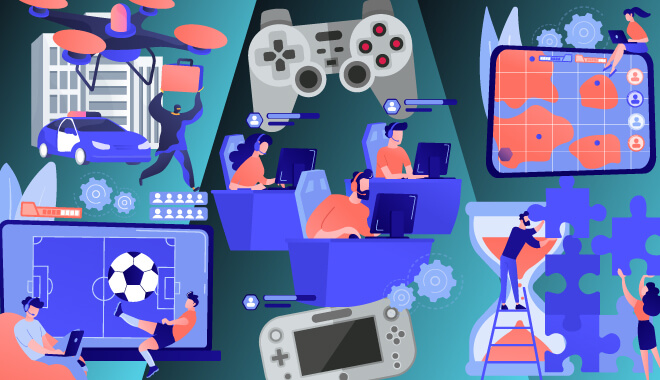
What jobs are there in the video game industry? Luckily for you, there are tons of jobs in various facets of the video game industry. First, let's take a look at some of the more technical jobs in video game development, what they do, and if they catch your fancy.
Technical Jobs
Quality Assurance Tester

Few positions are more entry-level in this industry than a job with the Quality Assurance department (QA for short).
As a QA tester, you're responsible for exactly what your titles imply: assuring quality. You test games to make sure they run smoothly. You're responsible for finding bugs, suggesting changes, and offering suggestions for fine-tuning the game.
You are responsible for making sure the game is playable. You root out the glitches, the hiccups, the flaws–in many ways you're the final gatekeeper. You're a Crow of the Night's Watch, and you man the wall against any wildling coding or game elements from invading the lands.
It sure sounds noble and glorious…But, if you know Game of Thrones, you know that serving as a member of the Night's Watch is a thankless job. In many cases, so, too, is serving as a quality assurance tester.
You'll have to work long hours playing the same parts of a game over and over to try and break it. You'll be working under deadlines. QA jobs also aren't always the steadiest. Quality assurance testers are essential before a big launch. Once the game is out, the need dies down.
Still, quality assurance testing gets your foot in the door of the game design industry. You'll meet people. You'll touch some software. You'll be working in a professional studio, gettings hands-on time in the game design and development process.
In order to springboard from QA tester to a role outside of the quality assurance department, you'll need to develop game designer or developer skills. Animation, programming, design–whatever you want to get into, develop those skills before becoming a QA tester to give yourself the best odds.
Level Designer/Editor
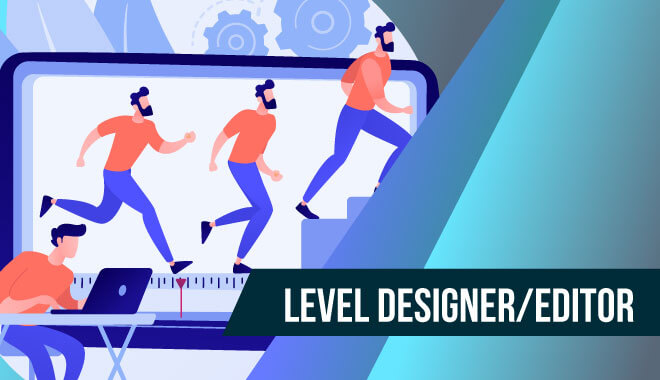
This position is viewed as an almost entry-level position. Some game designers and developers got their start with this job. Many others did not (gotta' give fair warning).
As a level designer, you'd be responsible for designing environments in a game. Houses, dungeons, buildings, landscapes–whatever environments the game calls for, you'd have a hand in designing.
This job is neat because you can get a bit of freedom with your designs. Sure, the Game Designer and the Art Lead will tell you the theme and the art direction of the game, but you'll have wiggle room to create within that framework.
Level designers and editors can also be tasked with developing the gameplay of a level. In a genre like platformers, you'll be designing a large part of the challenges that players of the game will face.
How do you land a job like this? Some level editors got calls from studios after putting serious hours into mods. Modding is an excellent way to get experience with AAA game assets.
It's also an awesome opportunity to flex your level design muscles. And, as some game developers have proven, if you do it well, you can get noticed.
Junior Game Developer

As a junior game developer, your role will depend largely on the needs of the studio and the size of the project you're working on. The smaller the team, the bigger your responsibilities (usually).
On a big team, you might be working with a number of other junior developers, with the lead developer at the helm. You'll likely receive specific tasks, or be put in charge of polishing various aspects of the game: like adjusting text or cleaning up certain elements.
You'll answer to the lead developer and help out wherever they need you to.
If you're working with a small team, you might receive the lion's share of the developing work. The size of the project and the team you're working with will determine the scope of your role. Be ready to be flexible in a junior developer position!
Game Designer
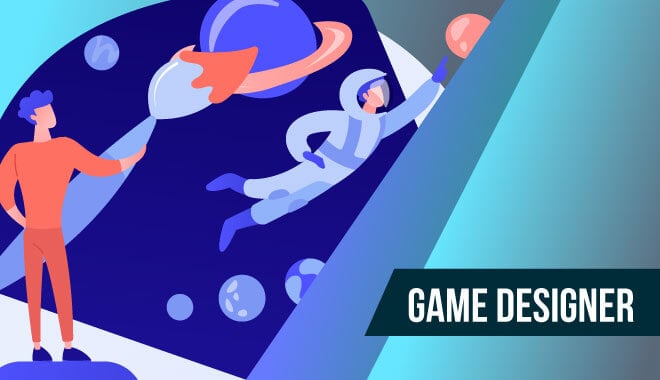
The Game Designer position is a highly coveted position (at the very least, it's a position that thousands of people outside the industry think they want). The game designer fulfills its titular responsibilities: they are responsible for designing games.
Who decides what the gameplay will be like?
The Game Designer.
Who decides the theme, the characters, and the other core elements?
The Game Designer.
It is a role with great power and great responsibility (but unfortunately no web-slinging).
Game Designers need to be great leaders. You'll need excellent communication skills. It's your responsibility to communicate the elements of the game to the other departments.
Obviously, this role is not entry-level. It requires a substantial breadth of industry knowledge: system hardware capabilities, budgeting, developer roles, software technologies, and more.
The Game Designer needs to know these things because it falls on them to identify technical and time constraints and build the best game the studio can within those constraints.
A common sentiment is that game designers need to know how to program, at least to some degree. If you don't know the programming side, how can you be in charge of the whole product? How can you know what kind of output is possible, and in what time frame?
The short answer is: you can't.
If you're aspiring to this position and were wondering how you could get there before now, you're likely a ways off. There are a lot of roles you'll need to adopt in the interim. Short of starting your own studio, there's no shortcut to a Game Designer position.
Software Developers and Computer Programmers
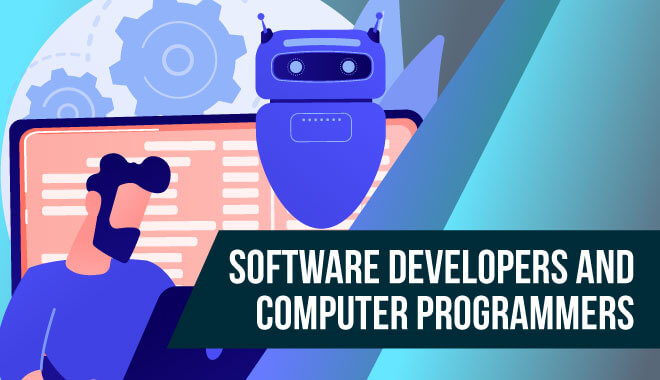
These two game design jobs are perhaps the most crucial to making the game actually run as intended. While we see the animation, physics, and artwork, the team of programmers and developers have created the gaming world's framework.
What skills do you need to be a game developer? You need to be well versed in coding languages, gaming trends, have excellent teamwork skills, and be able to showcase passion and creativity for your work.
Audio Engineers
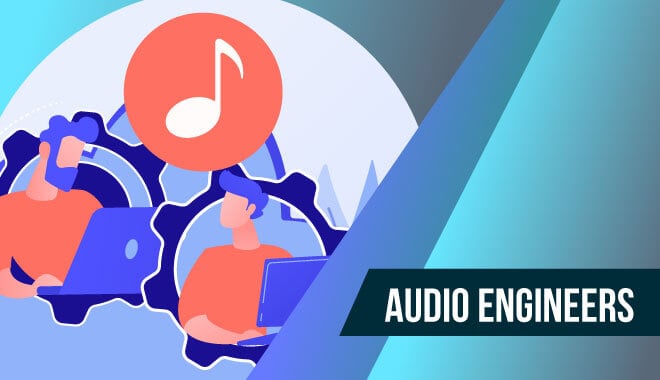
Audio engineers are the ones that make sure all of the game's sounds are synced up, working properly, and coming through as intended. Audio engineers bring gamers into the game world, immersing them in a great experience. Do you think Final Fantasy VII Remake would have been as poignant if they didn't have amazon audio engineers on their teams? No way!
Interpreters and Translators
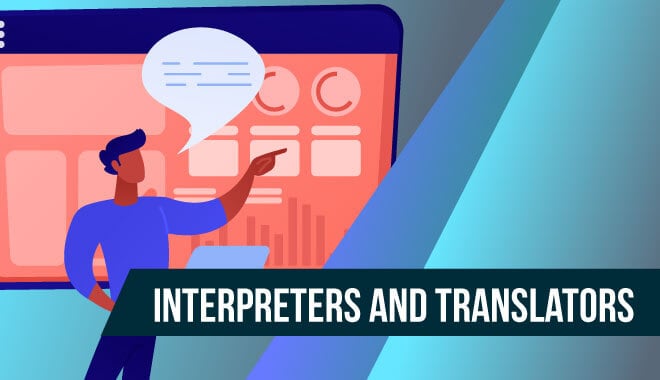
If you have played The Witcher 3, you'll be familiar with how many languages you can play the audio in. This means you could have Geralt and his friends speaking Polish, Russian, English, Portuguese, and Japanese. This was the hard work of interpreters and translators.
You take the game script and writing and use your language skills to translate the essence, words, and story into a different language.
Video Game Testers
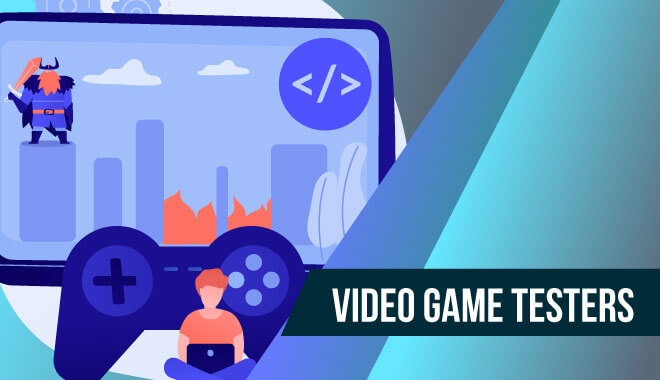
Yes, you can land a job testing games for bugs and technical glitches before they're released. How much does a game tester make a year? Game testers usually make around $13-14 an hour, depending on the company you work for. Keep in mind that the average tenure for a game tester is a year or so.
Technical Support Specialists

These jobs are geared towards making sure everyone's gaming experience is running smoothly. Although we joke that I.T. specialists will ask 'is your system unplugged,' they go way out of their way to make sure you can keep on playing.
Technical support specialists need to have an intimate knowledge of the game, technology, and computers to even begin to be able to help anyone in their experiences.
How much does a game developer earn in the U.K.? They earn around £19,000 to £25,000. Once starting out, but you can quickly move your way up, making a possible £55,000 to £75,000 once you've moved up the game development ladder.
Creative Jobs
Here are some of the more creative ways to land video game industry jobs:
Game Artist
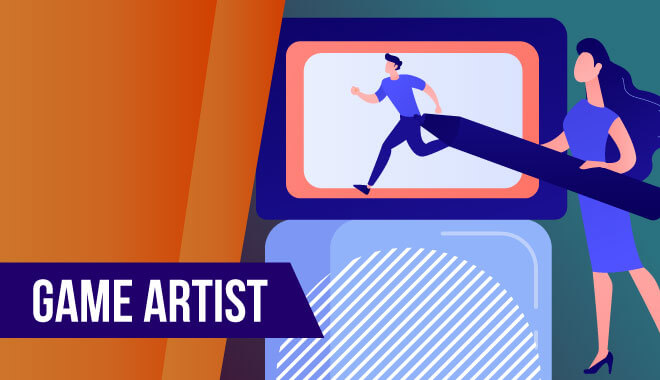
Your job as a game artist will require you to create everything from concept art and storyboards to actually rendering the objects in the game.
Smaller indie studios might outsource this role to freelancers, but many studios will manage this role in-house.
You might have a hand in creating everything from characters and weapons to scenery and surface textures.
You'll need a penchant for drawing, and you'll probably want some decent programming skills, too (unless you only want to work on interactive graphic novel games). A strong portfolio can help you land this job, so will a good network of professional connections who are familiar with your talent.
Evolution: Once you put in enough years, acquire enough wisdom, and hone your skills to the level of master, you might finally evolve to the position of Lead Artist. Lead Artist is the head honcho of the art department. They are in charge of the game's visual style.
The visual assets need your OK to make it to the game. If you eventually want to be the Lead Artist, it's a good idea to put in as much time as you can in the different art department roles.
Varying your experience as you work your way up the latter will give you the diversification and understanding you need to effectively manage the department when you take the wheel.
Animators and Other Artists
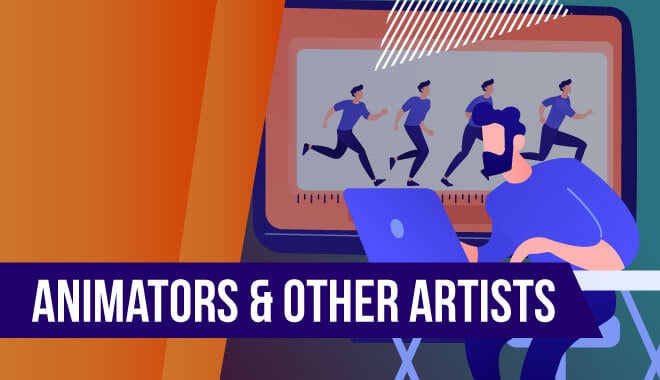
This is where artists shine. Animators and other artists will visualize and form the look and feel of the game world. While programmers and coders create the world's framework, artists make the world unique, attractive, and immersive.
Writers

Ever play a great story in a game like Knights of the Old Republic or Mass Effect? You could become a professional game writer yourself.
Business Jobs
These are more of the 'board room' types of game industry jobs:
Producers

Producers are what make the world go round. They help create and finance the game being made. They share a significant responsibility in the game's development and subsequent success or failure. They wear many 'hats,' so to speak. They take on the roles of researcher, financier, salesman, and more.
Market Research Analysts

This position is all about doing research to make the game development process mirror that of the gaming audience and demographic. Do 18-year-olds play a particular game? What were the online stats for an individual game during a certain time? Research analysts take a deep dive into the critical info to find new solutions and methods going forward.
Sales Representatives

Sales reps are the salesmen of the industry. They go out there and broker deals between distributors, companies, and other aspects of the game industry.
Administrative Jobs
Human Resources

H.R. in game development isn't so different from H.R. in many other industries. Human resource employees are all about making sure employees are happy, healthy, and thriving in the game development environment. It focuses on the growth of the company and employees, ensuring they are assisting employees with whatever problems they may have with the company or one another. They are expert mediators and talented delegators.
Customer Support

Customer support jobs are what makes everything run smoothly. These unsung heroes help gamers, customers, and consumers through their unique problems with different products and games.
All of that being said, what is the highest paying job in the video game industry? That honor belongs to Software Developer, who can earn well over $100,000 a year.
Internships
Scoring a valuable internship can not only impress future employers but also give you an indispensable leg up in the future hunt for game industry jobs. Going on job searching websites can lead you to some great internships. Whether paid or unpaid, (I know, I know), these internships can better familiarize yourself with nearly any aspect listed above for any of the video game developer jobs.
Tips for Getting a Job as a Game Designer
Breaking into the industry is tough. The bigger it gets, the bigger the pool of competition. Game design degrees have popped up all over the place. That isn't an accident–colleges are meeting a demand.
So here's the best tip you can get: make games.
On paper, you're going to look remarkably similar to the thousands of other students getting a game design and game development degrees (if you go that route). Where can you stand out? Your portfolio. Or your reel. Or your modding presence. Whatever you want to create, create it.
You have to love the process so much that you're willing to ignore the advice of people telling you that it's too hard to break into the industry (*cough* kind of us right now *cough*).
If you aren't designing or developing every single day, you're going to lose. The best athletes train every day. The best writers write every day. The best gamers game every day. The best designers? The best developers? They design and develop every day!
Next time you get the urge to play GTA 5 or watch Kwebbelkop play PUBG, just remember: someone else who wants to make it in the game industry is hard at work honing their skills.
Where to Look for Jobs
Where can I work as a game developer? Here are a few sites to help you along in the job search:
Indeed
Indeed is a great job searching website that streamlines a lot of the hassle of the ordinary job search we all have to do. You can fill out your game-related job resume and check out the plethora of video game industry jobs.
Gamesindustry.biz
This is a more specific job board for those looking for video game designing careers.
Zip Recruiter
Ziprecruiter allows you to send off your resume with lightning speed to hundreds of employers a day. The same ease of use goes for people looking for employees. The site is optimized for use by job seekers and employee seekers.
How to Find Entry-level Game Design Jobs
Now that you know a little more about game designers, let's see how you can get that perfect entry-level game design job.
How to Get An Entry-Level Design Job With No Experience
Although tricky, it's not impossible. The key to impressing employers is a robust and concise portfolio and design process.
Since you'll be trying to convince a future boss that you are the best candidate, you're at a disadvantage. Many game designers get their degrees or enter a certificate program, hoping to earn accolades that prove their specialization skills.
However, you can turn this around into a positive one. What do you do?
You can pour all of your energy into practicing and beefing up your portfolio with excellent work. You have to do this 100%. Since you won't have an advanced degree or certificate, you need to show that you can execute impressive work flawlessly.
Responsibilities of An Entry-Level Game Designer
Game designers are responsible for the coding, planning, animation, project management, and you guessed it, designing a game. While certain duties and more specific jobs may get assigned to people, a game designer's job is quite diverse.
If you're an entry-level game designer in a small team, chances are that you will perform many different tasks and put your skills to the test.
What Are Some Entry-Level Game Design Positions?
Starting out, you most likely won't be given a ton of responsibility. However, don't be discouraged! You need to work your way up and prove yourself. If you were to snag a job without experience, you need to put that extra work in to show you're skilled and dedicated.
Some great entry-level game design positions are:
- QA Tester
- UI and Graphic Designer
- The user interface is a massive deal in gaming. Along with the user experience (UX), it can significantly affect the enjoyment of a game. These professionals ensure that everything is smooth and well-designed.
- Coder
- Coders have a bunch of responsibilities, like coding level design, parameters, and physics.
Where to Look for Solid Entry-Level Game Design Jobs
Here are some of the best leads for entry-level design jobs you can find through these websites.
Indeed
- Entry Level Game Designer Jobs, Employment
- Video Game Design Jobs, Employment
Glassdoor
- Junior game designer Jobs
ZipRecruiter
- $31k-$96k Entry Level Game Designer Jobs
Simply Hired
- 20 Best entry-level game designer jobs
Game Development And Design Jobs
Source: https://www.gamedesigning.org/career/jobs/
Posted by: chamblisswaregs.blogspot.com

0 Response to "Game Development And Design Jobs"
Post a Comment